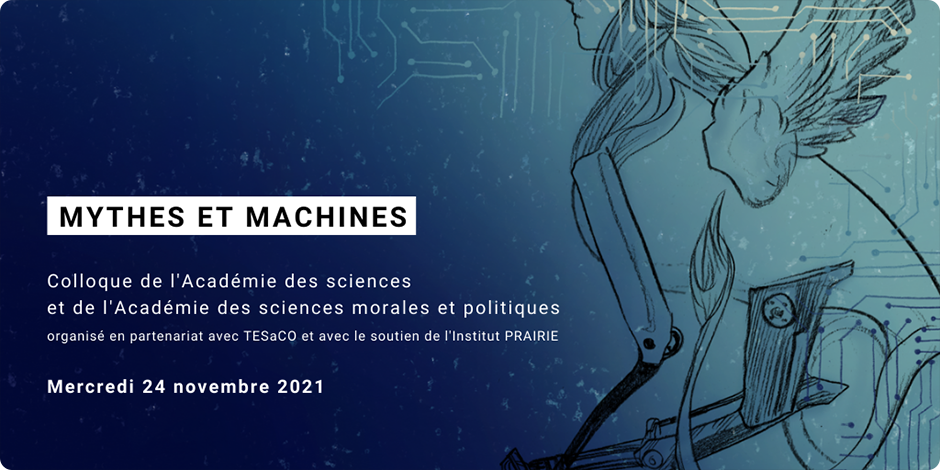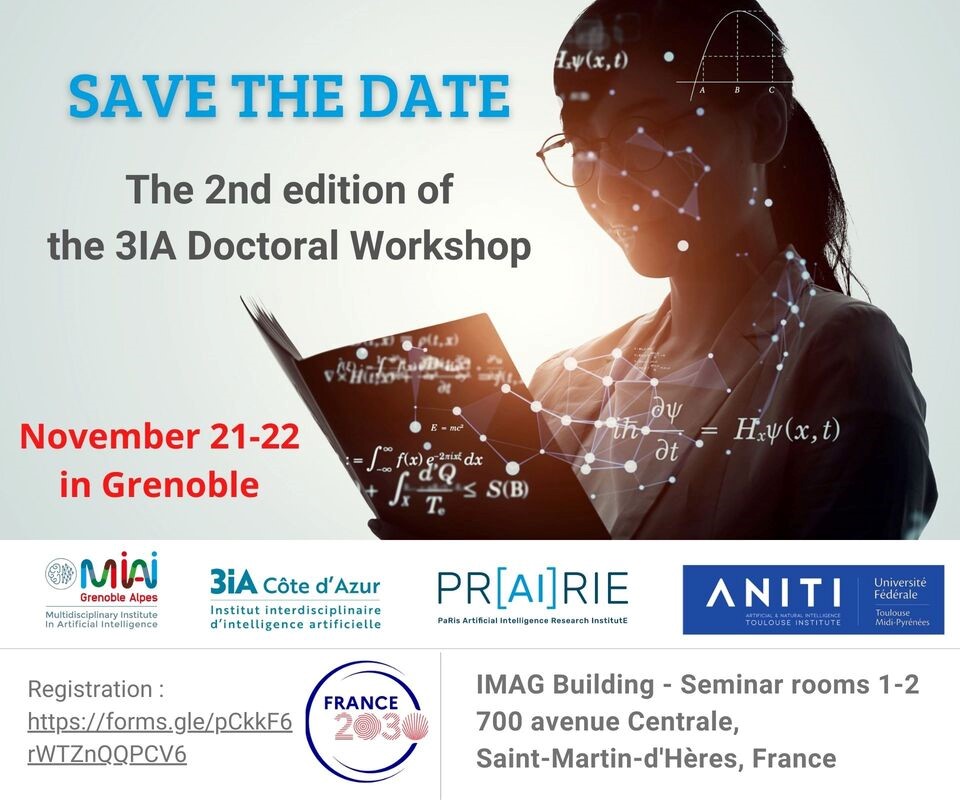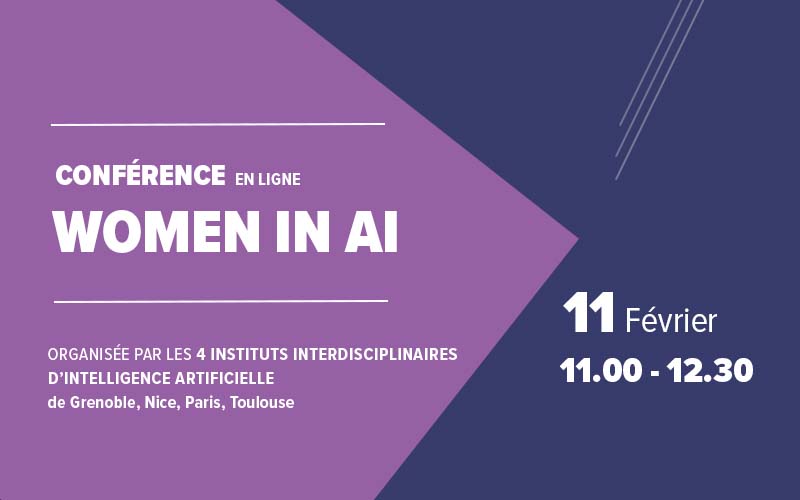Colloque “Mythes et Machines”
L’auditorium André et Liliane Bettencourt de l’Institut de France.
Inscription: https://www.academie-sciences.fr/fr/Colloques-conferences-et-debats/mythes-et-machines.html

Un colloque intitulé : Mythes et Machines — Robotique et Intelligence Artificielle : penser la technologie aujourd’hui se tiendra le 24 novembre à l’auditorium André et Liliane Bettencourt de l’Institut de France.
Organisé par l’Académie des sciences et l’Académie des sciences morales et politiques, en partenariat avec le programme TESaCO et le soutien de l’institut 3IA Prairie, l’objectif du colloque est de faire dialoguer dans un même lieu, scientifiques et chercheurs en sciences humaines pour mieux comprendre comment se forge l’imaginaire collectif, un préalable à tout débat éthique et à toute décision politique sur les enjeux liés aux nouvelles technologies.
Orateurs :
- Daniel ANDLER, Université de Paris-Sorbonne, Académie des sciences morales et politiques
- Stefana BROADBENT, Ecole polytechnique de Milan
- Sébastien CANDEL, CentraleSupélec, Académie des sciences
- Patrick CHASTENET, Université de Bordeaux
- François DELAROZIÈRE, directeur artistique, compagnie La Machine
- Yves FRÉGNAC, CNRS, Unité de Neurosciences, Information et Complexité
- Jean-Paul LAUMOND, CNRS/INRIA, Académie des sciences
- Yann LE CUN, New-York University, Facebook
- Gentiane VENTURE, Université d’agriculture et de technologie de Tokyo et l’AIST
Deux tables rondes sur les thèmes :
- Le mythe de l’imitation du vivant
- Nouvelles technologies et culture contemporaine



